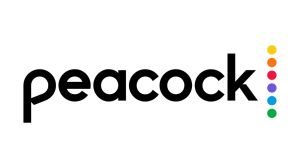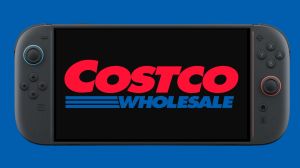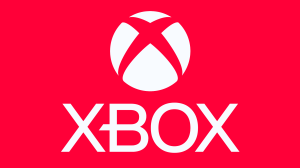Anime has enjoyed plenty of peaks, but it would be foolish to say the industry hasn’t stumbled into some pretty deep pits. Not every series can be a masterpiece from Kyoto Animation or receive clout from Hayao Miyazaki. No, there are dozens of anime titles out there which failed to impress fans, and the whole thing happens more than you would think.
Videos by ComicBook.com
In the past, fans have placed blame on lackluster anime to any number of reasons. Anything can be faulted from poor technology to low budgets and even last-minute licensing. Still, there are some anime projects which had everything going for them and still failed to live up to fan expectations. Not even all-star casting and popular manga titles can save an anime if it is downright boring, and ComicBook has rounded up some of those surprising letdowns from the last few decades:
Did your personal pick for anime’s most disappointing title make our list? Hit me up on Twitter @MeganPetersCB to let me know and talk all things comics, k-pop, and anime!
Kingdom
Kingdom might as well be one of Japan’s best-kept secrets. The manga series is a very popular one abroad as its sales are up their with giants like One Piece. The title, which got its start in 2006, is a best-seller and critical darling. It’s just a shame the same cannot be said for its anime.
If you have not heard of Kingdom‘s anime, do not be surprised. It seems like the whole fandom has tried to sweep it under the rug. The show debuted back in June 2012 under Pierrot and even got a second season before its quiet end. The show’s hopes of becoming a beast like One Piece died out thanks to its lackluster reception. The anime’s confusing localization and shoddy artwork flew in the face of the epic tale – and fans were not having it.
Guilty Crown
When Production I.G informed fans it was working on a show called Guilty Crown, audiences were interested enough. The original title would join the up-and-coming studio’s line-up, and its artwork looked plenty pleasing at first. However, the show’s artwork was really all Guilty Crown had going for it in the end.
The series debuted in 2011 and has been forgotten by most of the fandom at large. For how hyped Guilty Crown was, its generic sci-fi story and unremarkable protagonists fell flat when they needed to soar. The hodgepodge show wasn’t bad per say, but fans were ultimately let down as Guilty Crown should’ve been charged with disappointing its early supporters.
Sword Art Online

When it comes to anime, Sword Art Online is responsible for an entire genre’s revival. The series re-popularized the industry’s video game genre, and titles like Log Horizon and Overlord benefited from its boom. Sword Art Online is hard to overlook, but its popularity these days seems to be spurred on by the sheer amount of hate it gets.
When the show debuted, fans were genuinely eager to see how Sword Art Online would go, but its insistence on fan-service and romance alienated many. By the time the anime reached season two, fans were rather uninterested in seeing how Kirito lived outside of Aincrad and only returned to hate-watch the show.
Ace Attorney
If you ask video gamers about their favorite lawyers, well – Ace Attorney will be high on that list. The character’s titular franchise was created by CAPCOM years ago, and its visual novel adventures have accrued a massive following. Ace and his justice-loving comrades have featured in more than a dozen games and manga series, but its anime adaptation nearly tore its fandom apart
A-1 Pictures secured rights to animate Ace Attorney for a full-on series, but its mashed up storyline vexed fans to an extreme. A few in-game cases were inserted into the anime for good measure, but the show’s wonky pacing and baffling plot holes made most viewers want to sentence Ace Attorney to life without a chance of anime parole.
Vampire Knight
Matsuri Hino’s Vampire Knight is a well-known shojo title, and its anime did make a splash with international fans. The gothic series tells the story of Yuki Cross, a headstrong girl who was saved from a rogue vampire as a child. The girl grows up as the adopted daughter of True Cross Academy’s headmaster, putting her in contact with the Pureblood vampire who rescued her all those years ago. However, things get complicated when Yuki learns more about her past and the growing love triangle she’s put herself in.
By all means, the series sounds interesting enough, but the show failed to do Hino’s manga justice. The original series has more than 15 volumes to its name, but Vampire Knight tried to fit way too much of the manga in a 13-episode run. The result wasn’t totally awful, but it left many fans feeling meh about the series.
Tales From Earthsea
It seems counter-intuitive to call anything from Studio Ghibli a disappointment, but there are few other ways to describe Tales from Earthsea. The film debuted back in 2006 under the beloved Japanese studio, and its involvement with famed author Ursula K. Le Guin had both anime and literary gurus buzzing. However, the film failed to impress once it went live under director Goro Miyazaki.
The 115-minute film tried to combine four of Le Guin’s novels into a single story whilst adding details from a manga created by Hayao Miyazaki. The overcrowded movie came off heavy handed to most viewers, and Le Guin famously distanced the movie from her books as she felt disappointed by the film’s final cut.
Tokyo Ghoul Root A

Sequels are never an easy thing to make, and the anime industry knows that very well. When Tokyo Ghoul made its debut way back when, the anime was well-received by the fandom because of its macabre story. So, you can understand why its second season flopped since it made the odd decision to forego any of Sui Ishida’s manga.
Tokyo Ghoul Root A diverges from the manga at some pretty major points. In the very beginning, rather than creating his own group to fight Aogiri, Ken Kaneki starts the anime by joining the group instead. The story was championed by Ishida himself as an alternate retelling of Tokyo Ghoul, but fans were less-than-thrilled with the title when it killed off a fan-favorite character.
Glasslip
There’s nothing wrong with a story about time travel, but Glasslip definitely didn’t do the trope right. Over the years, the industry has come to embrace tales that would make Doctor Who fans confused, and Glasslip hoped to be one of those series. The anime, which debuted back in 2014, intended for its cute cast of high schoolers to enamor audiences. However, the kids simply left audiences bored and confused instead.
The characters’ forgettable nature isn’t the only thing that made Glasslip disappointing. Fans were also perplexed how the show’s timey-whimey story worked. Its lead heroine Touko Fukami could see into the future if she looked at shards of glass, but her love interest Kakeru could do the same with music. Glasslip eventually explained each of the heroes’ gifts (kind of_, but its glacial pacing kept many from ever reaching the long-winded lesson.
Dragon Ball GT

You can’t talk about big anime franchises and neglect Dragon Ball. Akira Toriyama’s series has become a truly global one whose reputation is known to even the most anime illiterate. Shows like Dragon Ball and Dragon Ball Z defined millions of childhoods around the world, but Toei Animation did not want to let the franchise die when there was still money to make. So, fans wound up with Dragon Ball GT.
The third series remains a controversial one with Dragon Ball fans thanks to its questionable canon. As a sequel to Dragon Ball Z, the anime takes place long after the popular show ended, but Dragon Ball GT did not come from Toriyama’s manga. Toei Animation brought on a new team to create wholly original stories for the contested series, and fans have yet to forgive Dragon Ball GT for turning Goku into a little kid again.
Psycho-Pass 2
It is hard for any sequel to live up to its predecessor, and that is doubly true for Psycho-Pass. The franchise was another brainchild of Production I.G and had many ready to claim it as a successor to Ghost in the Shell. The anime’s first season gained universal praise from fans and critics, but its second is often cited as one of the industry’s most disappointing comebacks.
Sadly, Psycho-Pass 2 flopped with fans for more than a few reasons. Not only did its tone and character roster shift, but its DNA was altered thanks to a major crew shuffle. Katsuyki Motohiro and Gen Urobochi were the real masterminds before Psycho-Pass‘ first season but they declined to return for a second season when asked. The writers focused their time on the franchise’s debut film – which is excellent – and their absence is widely regarded as the reason for Psycho-Pass‘ lackluster return.









